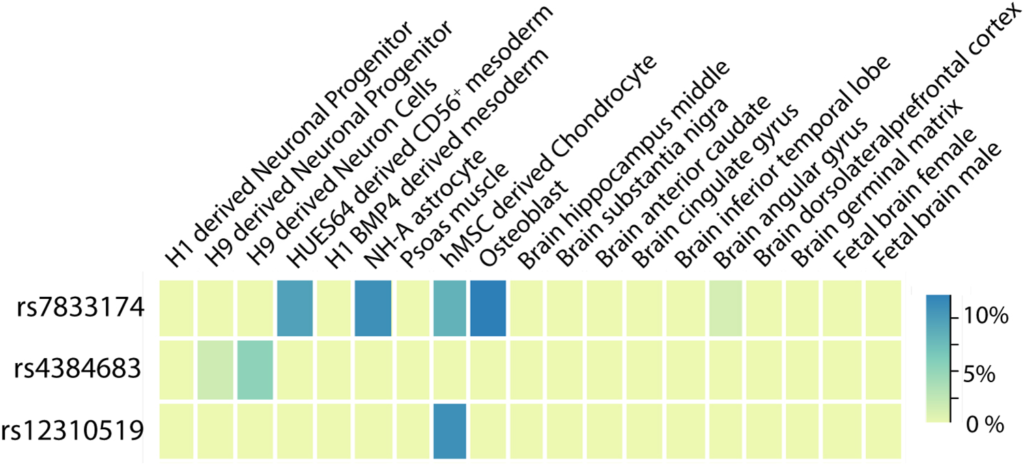New Genetic Variants Associated with Chronic Back Pain

Back pain is the #1 cause of years lived with disability worldwide and one of the most common reasons for health care visits in developed countries, yet surprisingly little is known regarding the biology underlying this symptom. A new study, led by Pradeep Suri of the Department of Veterans Affairs in Seattle, Washington (U.S.A.) and prof. Frances Williams from King’s College London’s Department of Twin Research and Genetic Epidemiology (U.K.), identified three novel genetic variants associated with chronic back pain. The study, which was published in the open-access journal PLOS Genetics, links the risk for back pain with variants in genes controlling skeletal development, among other pathways. These findings may help to elucidate the basic biology underlying this common symptom, and point toward avenues for the eventual development of new therapies.
The team of researchers, that included PolyOmica staff members, conducted genome-wide association study to examine genetic variants associated with chronic back pain in 158,025 individuals of European ancestry from 16 cohorts in Europe and North America; results were replicated in 283,752 UK Biobank participants. The strongest association was with a variant in the SOX5 gene, that has previously been linked to defects in cartilage and skeleton formation in mice, supporting the hypothesis that the variant discovered in this study may contribute to chronic back pain through its influence on some aspect of skeletal development. Another gene linked to back pain was previously reported to be associated with intervertebral disc herniation. More details of the study can be found in [1].
“The results of our genome-wide association study point to multiple pathways that may influence risk for chronic back pain,” said Suri. “Chronic back pain is linked to changes in mood, and the role of the central nervous system in the transition from acute to chronic back pain is well-recognised. However, the top two genetic variants we identified suggest causes implicating the peripheral structures, such as the spine. We expect that further large-scale genetic studies will reveal the importance of both peripheral and central contributors to the complex experience of chronic back pain.” [2]
Supported by the EU-funded PAIN-OMICS project (grant agreement n. 602736), PolyOmica staff supervised and assisted with meta-analysis of the genome-wide association scans performed by the different centres and advised on statistical genomic aspects of the work. We have hosted the UK Biobank data used in this work, have provided computational and data management facilities, and contributed to development of the GWASarchive platform [3] that hosts summary-level data of this chronic back pain genome-wide association study.
The results of this and other on-going genetic association studies will facilitate our further works aiming at discovery of intervention targets and therapeutic interventions for musculoskeletal pain.
- Suri P, Palmer MR, Tsepilov YA, Freidin MB, Boer CG, Yau MS, et al. (2018) Genome-wide meta-analysis of 158,000 individuals of European ancestry identifies three loci associated with chronic back pain. PLoS Genet 14(9): e1007601. https://doi.org/10.1371/journal.pgen.1007601
- Science Daily (September 27, 2018). New gene variants associated with chronic back pain. https://www.sciencedaily.com/releases/2018/09/180927145324.htm
- GWAS Archive, http://www.gwasarchive.org/
1 Comment
Tom Caffrey
29 September 2018 at 04:39 •Nice report, thank you.